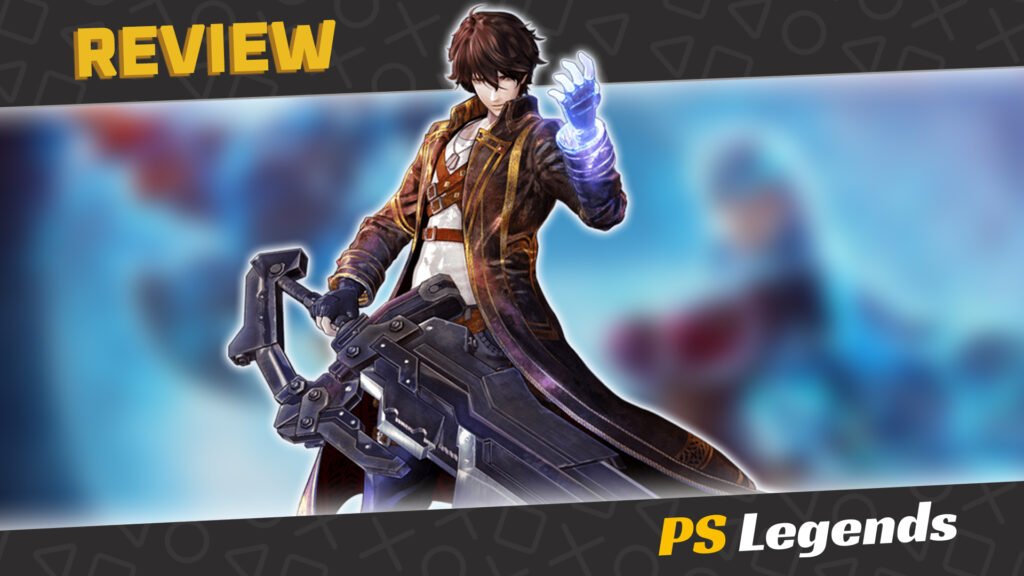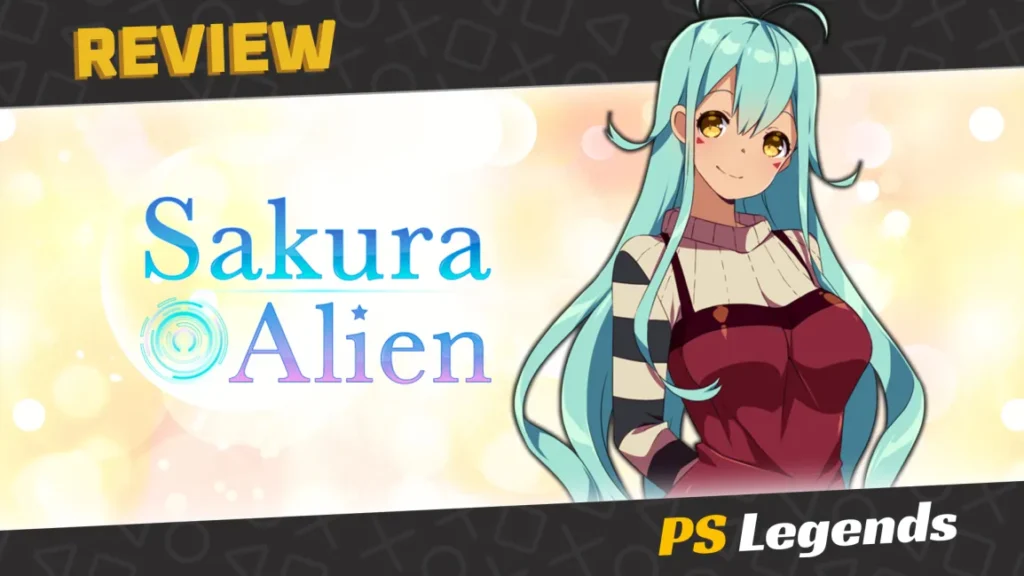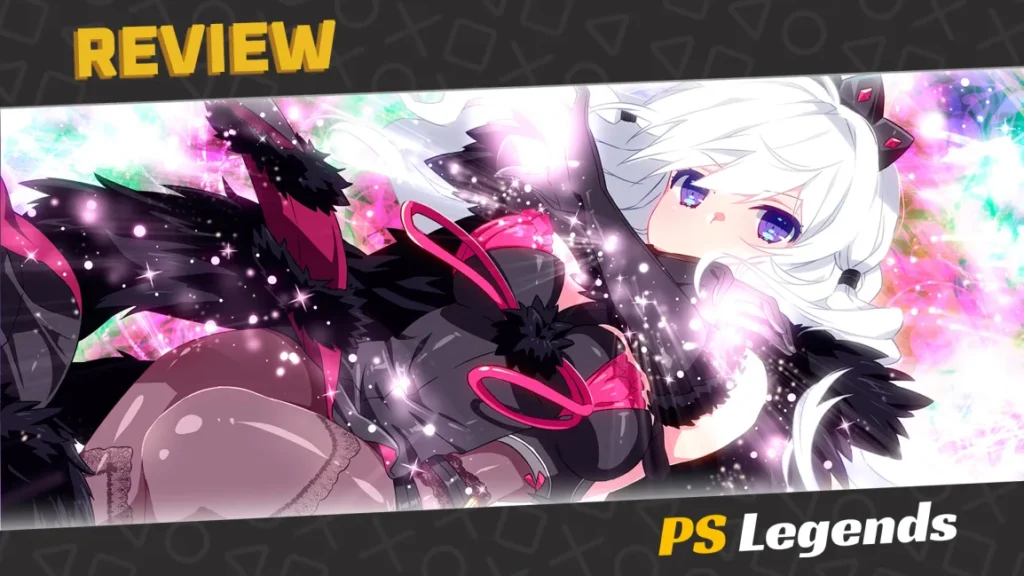I’m always happy to stick up for an underdog. I’m nice like that. It does sadden me when a perfectly serviceable game gets dragged through the wringer of critique, simply because other games have handled similar themes and gameplay with better results over the years. Despite this, I don’t really feel like I’ve done Valkyria Revolution justice in previous drafts of this review. Time for a re-write. Let’s do this properly. Valkyria Revolution might not be perfect, but it still deserves its chance to shine.
Introduction
Valkyria Revolution is a 2017 action role-playing game developed by Media.Vision and published by Sega for the PlayStation 4 and PlayStation Vita. It is a spin-off of the Valkyria Chronicles series, set in an alternate fictional universe using real-world geography as a template to create a twisted history of steampunk technology and mixed elements of past, present and future weaponry.
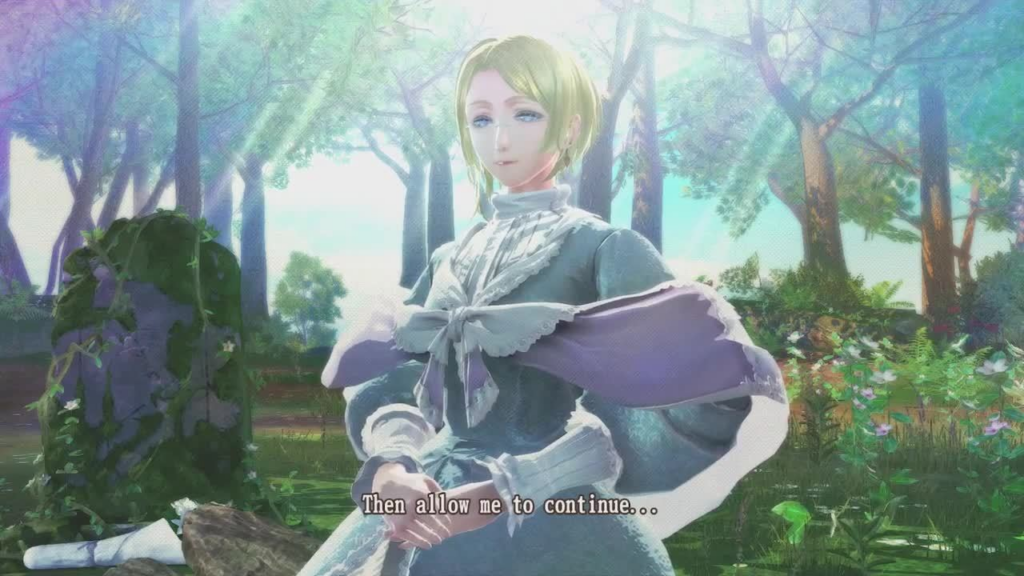
Story
The story of Valkyria Revolution is told via a historical retelling as a Jutland student working on a paper about ‘The Five Traitors’ seeks to learn more about their history and the war between Jutland and the Ruzi Empire. His teacher, Richelle, frequently interrupts the game to elaborate on certain points within the story as told to her by her great-great-grandmother, who was a teacher to the Jutish princess at the time. The story is told through a series of episodes, each detailing a chapter of Jutland’s war effort, as we uncover the truth about a group of individuals who fell into infamy in the history books.
The small country of Jutland was economically blockaded by Ruzhien, a powerful empire that expanded its territory and achieved rapid industrial development after discovering the azure mineral, ragnite, which serves both as an energy source and a catalyst for alchemic development. Ten years prior to the war, in the land of Molda, an orphanage was burned down by the Ruzi Emperor Klaudiusz and his four Grand Generals as they were visiting the nearby Valkyria ruins. The men also kidnapped Maria, the matron of the orphanage. Only five orphans survived, having been away from the orphanage at the time: Amleth Grønkjær, Basil Sabancci, Fritte Eriksen, Solomon Kahlenberg and Violette Szand. The five secretly plotted to kill Klaudiusz and attempt to find Maria.
As they were adopted by foster parents, the five grew incredibly skilled in their respective fields: Amleth became an officer in the Jutland army, and would later form the anti-Valkyria unit named Vanargand. Basil became an industrialist who owned a factory that dealt in ragnite-based weapons and technology. Fritte chose to become a writer, using his words to inspire the people of Jutland and later provoke them into war. Solomon became a legislator who helped provide legal cover for the group’s actions while steering the country towards war. Violette became a master spy, using her skills and charm to form a large network of contacts throughout Europa.
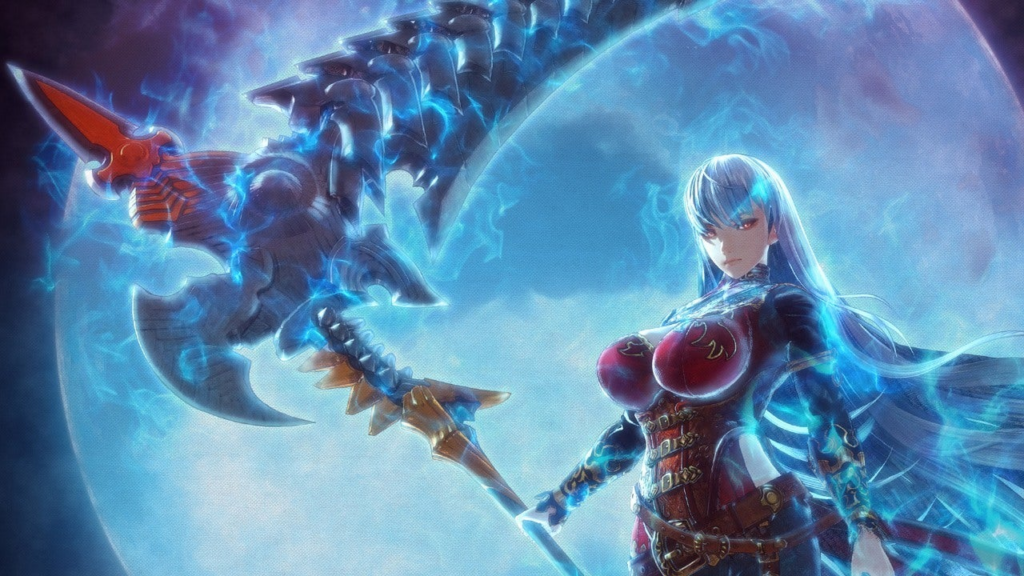
An initial attempt to kill Klaudiusz failed, as Amleth’s assault was blocked by the appearance of a reaper-like entity known as the Valkyria, and Amleth was nearly killed, but the reaper spared his life and withdrew. Following the event, the five discussed their next move, as Klaudiusz would no longer be so vulnerable while the Ruzi Empire and its allies blockaded Jutland to the breaking point. After a coin toss, the five decided to set Jutland on a course for war, both to end the blockade and to get revenge for Maria. With Basil’s help, Amleth formed Vanargand within the Jutish army, knowing that any attack on Klaudiusz would be pointless if they could not defeat the Valkyria guarding him.
There’s a surprisingly intricate plot of political strife and hidden agendas here. In the wake of a revolution, Jutland’s elite Vanargand soldiers must band together to defeat the Ruzi Empire and its ultimate weapon, the Valkyria. This rag-tag anti-Valkyria squad is equipped with advanced mana weaponry and has the powerful ability to wield ragnite spells to combat this invulnerable threat.
The unit is comprised of soldiers who have a high affinity for ragnite, and even Jutland’s own Princess Ophelia has joined their ranks. The princess carries the utmost love for her country and has answered the call of duty to liberate those who are suffering from the Ruzi’s tyranny. However, protagonist Amleth Grønkjær, the commanding officer of Vanargand, hides a terrible secret. Is he really friend or foe to the country he has sworn to protect?

Gameplay
Valkyria Revolution is an action role-playing game with strategy elements. The flow of the game consists of the player preparing at their base, going to the battlefield to achieve their objectives, and then returning to the base again. The turn-based action found in the Valkyria Chronicles series was replaced with a more active combat system where actions and decisions on the battlefield have to be made in real time. The player leads a squad of up to four allies with different roles including damage-dealing shocktroopers, fleet-footed scouts, shield-bearers with heavy defense, and ‘sappers’ who focus on alchemy and long-range attacks.
Though the player can only control one character at a time, the artificial intelligence behavior of their allies can be influenced by chosen ‘Priorities’ which can be set before battle. Priorities range from basic commands like using melee attacks, to more specific commands like guarding allies with low health. More Priorities can be acquired by visiting a ‘Circle’ in town between missions and listening to their conversations. Furthermore, players can order their squad to focus on offense, defense, or support functions, and can break up their squad into ‘solo’ or ‘partner’ units to take on multiple enemies, or stay as a squad to focus on one enemy at a time which makes for a simpler ‘safety in numbers’ basic strategy.
Each character carries a melee weapon, long-range weapon, a grenade, and an item pouch for single-use restorative items. The long-range weapon and grenades have limited ammo, which can only be replenished by capturing enemy bases in the field. Each character also has the ability to cast magic spells called ‘alchemy’, with varying effects depending on the type equipped. Most weapons and alchemy can be upgraded and switched out for every character between battles at Basil’s Workshop in town, but melee weapons are permanently attached to the specific characters wielding them. Melee weapons can be upgraded at Basil’s shop to expand the user’s stats and alchemic affinities, but extra alchemy must be used to upgrade them rather than simply purchasing upgrades.
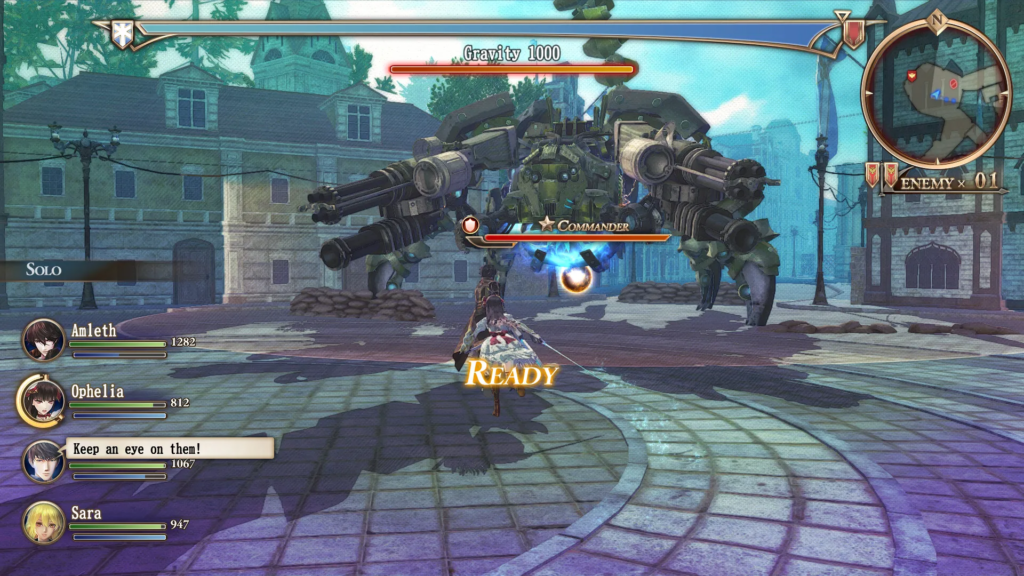
Graphics/Sound
One of Valkyria Chronicles’ strongest aspects was its beautiful watercolour art style, and Valkyria Revolution contains certain elements of this. While the game’s art style may not feel as vibrant and smooth as Chronicles, Revolution’s aesthetic works well enough. Even though it may not be the most graphically impressive game, the art style works to give Valkyria Revolution a familiar feel. The game runs smoothly, which may be an advantage of simpler animations, with very angular facial details and wooden character movements. Generally, the game does feel like an early PS3 game.
There is an abundance of loading screens that can be a bit jarring, especially when they’re slotted in between a number of related cutscenes. The amount of loading is noticeable, but doesn’t kill the experience. Fortunately, the soundtrack does a phenomenal job of bolstering the tones of the story, with some superb orchestral pieces. The soundtrack isn’t quite as diverse as one might expect as there are some repeating tracks, but it gets the job done.
On the other hand, the voice acting isn’t quite as strong as the rest of the audio design. The English vocal performance is rather mixed. Some scenes feel like the cast are phoning it in, not really caring much for authentic-sounding performances, although the characters certainly grow on you as you get deeper into the game. There’s even a song performance by Ophelia voice actress Eden Riegel which helped recover some lost points following a slightly janky performance where it almost sounds like she attempts British annunciation without the accent. Luckily, if you’d prefer to go without the English voices entirely, the game will let you swap to Japanese voices whenever you wish.
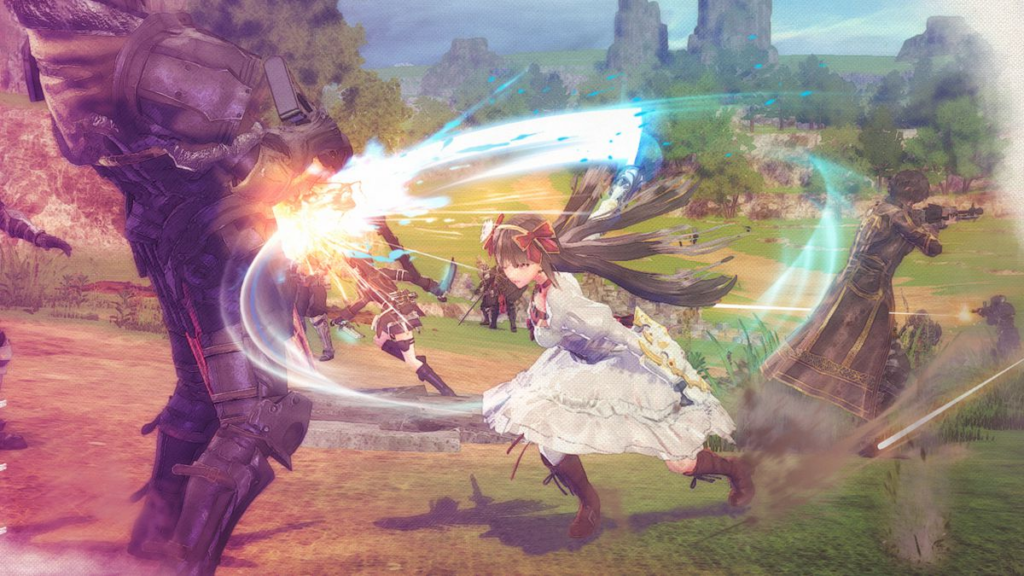
Replayability/Trophies
I finished Valkyria Revolution and had a genuinely fun time with it, but with little over 50% trophy completion after finishing the main game and a hell of a lot of grinding required for the rest, I won’t be getting that platinum trophy anytime soon. There are no missable trophies for this game, so their requirements can be completed at your leisure. A lot of trophies in the game will come steadily while playing, but a few trophies will need some extra toil to unlock.
For complete mastery, you will likely have to do a lot of free missions in order to liberate additional territories. Some fragment chapters are unlocked by using party members a certain amount of times. You will need to use characters at least 20 times to unlock extra fragment chapters with the ‘True Ending’ so it is best to keep changing party members while playing and trying to mix and match with them. You’ll know if you’ve used the party member enough times when the 2nd entries of that character appear in the Notebook. It is a fair bit of extra work.

Conclusion
Valkyria Revolution is a particularly endearing tale which showcases some real character depth and an especially emotional journey of revenge, loss and sacrifice. Not the cheeriest of stories, but certainly a moving one. I can’t fault the story or character development. Nevertheless, the game had a lot of bad press from critics, largely because it doesn’t really excel in any particular area, and broken down you could really lay into its core components, and yes, there is some truth in this.
Yes, the graphics are outdated; yes, the English voice-acting isn’t great (Ophelia, I swear if you say ‘Tis one more time…) and yes, the mechanics can be unusual. A prime example of this is a single press of the attack button will start a three-swing sword combo for Amleth. Fortunately, it is far greater than the sum of its parts. The battle system mixes real-time combat and tactical strategy which really immerses the player as you gradually capture territories in this fictional alternative-reality version of Eastern Europe.
Gameplay-wise you have something that’s so easy to pick up but difficult to truly master. A tip from me: don’t neglect to equip and upgrade your magic unless you want the bosses to absolutely wipe the floor with you. Give it a chance, a chance to immerse yourself in the familiar continent of Europa and resolve the revolutionary politics plaguing this troubled corner of the world. You could do a lot worse with your time than Valkyria Revolution.
Joys
- Outstanding storytelling
- Fun, strategic gameplay
- Quirky, interesting characters
Cons
- Presentation could benefit from some polish
- Voice acting quality fluctuates
- Grindy platinum
